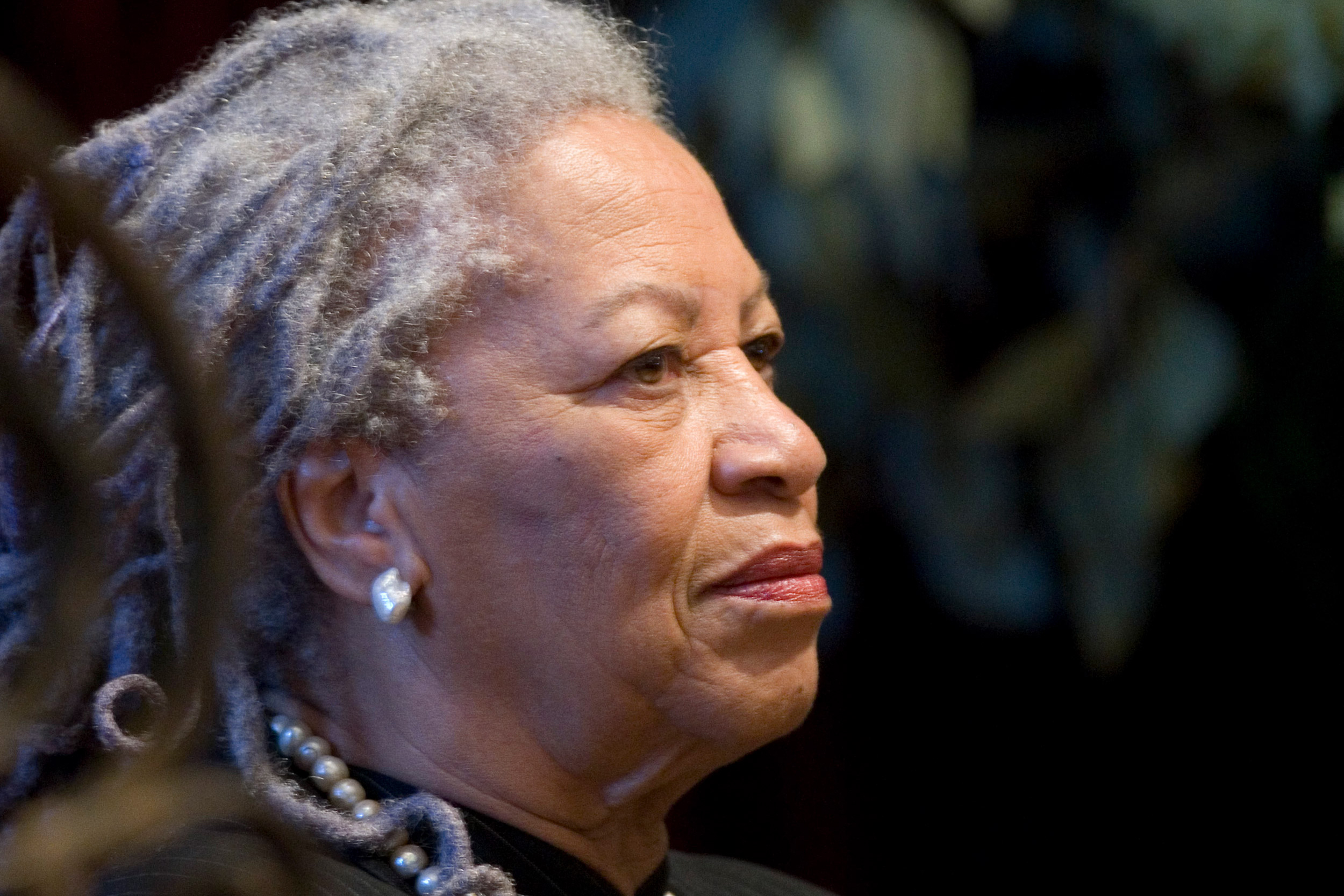
Stephanie Mitchell/Harvard Staff Photographer
Morrison reads at the Memorial Church
Nobel laureate marks inauguration of Drew Faust
The historical two-day celebration of Drew Faust’s inauguration as the president of Harvard began Thursday (Oct. 11) on a literary note. Nobel Prize-winning novelist Toni Morrison read from a work-in-progress — “very, very, very much in progress,” she said.
For the occasion, every pew in the high-arched space of the Memorial Church was filled, well ahead of the 4 p.m. starting time.
And before Morrison even spoke, the audience was on its feet to give Faust a standing ovation. Harvard’s new president, the 28th and the first woman, stood up and waved from the front pew.
“Thank you for saying, ‘Yes,’ to Harvard University,” said Memorial Church associate minister and chaplain to the University Dorothy A. Austin, who opened the ceremony. “We rise to thank you.”
Morrison — all in black, and with dramatic backswept gray hair — was introduced by Natasha Trethewey, recipient of this year’s Pulitzer Prize in poetry and a one-time Radcliffe Fellow.
The younger black poet wrote a poem in honor of the occasion, dedicating it to the older black Nobel laureate for “her tradition of empathy that enables our souls.”
“A Letter to Miss Morrison” praised the 76-year-old novelist for “your voice, a clear bell of reckoning” and for written words that “turn the past over to light.”
The past was a leitmotif during the brief event at the Memorial Church. For one, Trethewey’s Pulitzer-winning collection of poems, “Native Ground” (2006), is in part a celebration of a regiment of African-American soldiers who fought for the Union during the Civil War.
In turn, Morrison is a writer whose eight novels imaginatively relive the black experience in America. And Faust is a historian of the Civil War, a bloody cauldron that marked the beginning of more than a century of fighting for racial civil rights.
Then there was very recent history. Morrison opened by saying that “I actually insinuated myself into the proceedings — and the hint was received with enthusiasm.”
Going to the inaugural events of women university presidents — at Smith College, Brown University, the University of Pennsylvania, and elsewhere — has been a habit over the last few years, she said. And as for Harvard and the inauguration of Faust, Morrison added, “there’s no question about the deep satisfaction of this moment.”
The two women are friends. Last June, Morrison delivered a brief keynote address at the traditional Radcliffe Day luncheon. It was the unofficial occasion of Faust’s leave-taking from the Radcliffe Institute for Advanced Study, where she had been dean since 2000.
It was also the day, Faust recounted to the Memorial Church audience, that she was wishing Morrison could come to the inauguration — just when her friend asked her if she could be there. So Morrison’s presence this week, said Faust, “was hardly insinuation.”
Morrison stood at a podium to read, in a trademark style that is slow and precise. “Reading aloud to an audience,” she said, “is a kind of editorial process.” By the end of her reading, the Memorial Church audience was hushed and listening intently.
Faust praised both the poet and the novelist for helping bring the power of history to the occasion of the inauguration.
Bearing witness, and understanding the presence of history, she said, “means so much to us in all our lives and makes us human.”
With that, Faust took Morrison’s arm and led her down the steps. The audience answered with more applause.




